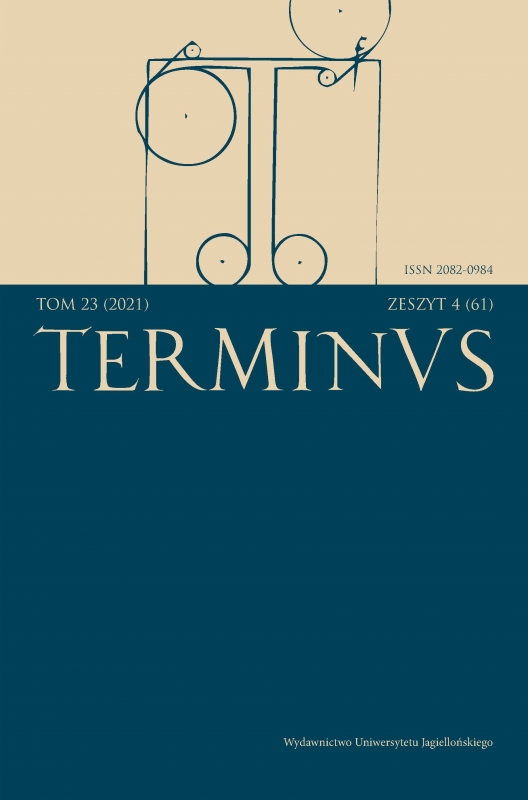„Dla pokutujących, co szli za nim, czynił procesyje z śpiewanim”. O wpływie reformy trydenckiej na różne formy pobożności (na przykładzie Żywotów świętych Piotra Skargi)
“For Those Who Followed Him He Made Processions with Singing”: On the Influence of the Tridentine Reform on Various Manifestations of Piety (on the Basis of Żywoty świętych by Piotr Skarga)
Author(s): Ewa Cybulska-BohuszewiczSubject(s): Language and Literature Studies, Studies of Literature, Social history
Published by: Wydawnictwo Uniwersytetu Jagiellońskiego
Keywords: hagiography; expression of piety; Council of Trent
Summary/Abstract: The aim of the article is to present how texts such as Żywoty świętych (first edition in Vilnius, 1579) could influence the shaping of modern post-Tridentine expression of piety. Claims were advanced over the past decades that the hagiographic literature did not bring anything new to religious culture, and that on the contrary, it contributed to the consolidation of petrified, medieval patterns and thus impeded the spiritual development of an individual. Such views were articulated by researchers such as Henryk Barycz or Janusz Tazbir, who failed to recognize the threads of the new post-Tridentine theology and the related patterns and forms of piety in Skarga’s text. The analysis presented here aims to refute these claims, arguing that Żywoty is a modern text, rooted in the spirit of the Tridentine reform. Similar arguments were put forth by Anna Kapuścińska in her monograph, and by Alina Nowicka-Jeżowa in her articles on the changes in Polish religious awareness against the background of other European countries at that time. Their findings are presented in the introductory part of the article. In the next part, the author focuses on describing specific expressions of piety (such as pilgrimages, processions, image worship, etc.) and how they are reflected in Żywoty. As it turns out, these are not relics of the Middle Ages, with Skarga’s narrative overtly encouraging his readers to be active, rather than passively perpetuate the usual patterns and dogmas. Żywoty is therefore a modern work, in line with the recommendations of the Council, which is also related to the fact that its author came from the environment of the Jesuits, who were extremely progressive at the time and advocated their own concepts of spiritual development, following the teaching of the founder of the congregation, Ignacy Loyola.
Journal: TERMINUS
- Issue Year: 23/2021
- Issue No: 4 (61)
- Page Range: 403-418
- Page Count: 16
- Language: Polish

